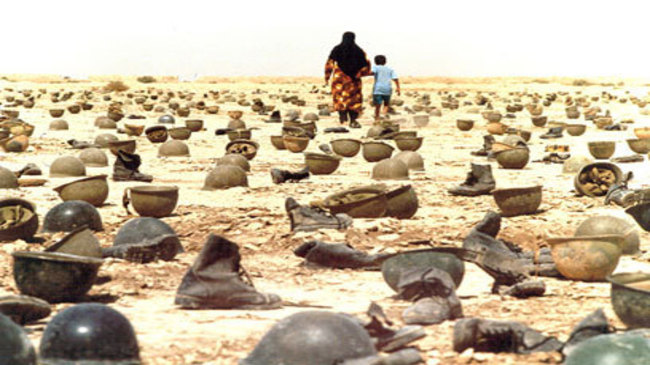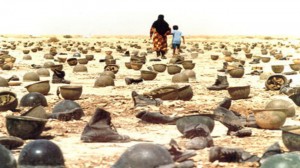Britain’s hostile approach toward Iran during Iraqi imposed war

Following the Second World War and the decline of British colonial power, London’s foreign policy has always been influenced by US expansionist plans, raising objections even among politicians in the UK to such an indisputable adherence.
Britain’s policy on the Iraqi imposed war on Iran could be defined as being primarily affected by Washington’s protectionist policies towards Iraq’s executed dictator Saddam Hussein and European Union’s approach to regional issues in the Middle East.
Relations between the Islamic Republic and the UK were also influenced by a number of factors such as the anti-colonial nature of the Islamic Revolution, the 1979 takeover of the US embassy in Tehran, the 1980 siege of Iran’s embassy in London, the frequent expulsion of diplomats from the both countries and finally the British support of Saddam during the imposed war.
Former British Prime Minister and Labour party leader James Callaghan recognized the government of the Islamic Republic of Iran in 1979, but he immediately proceeded to remove two thousand of his country’s citizens from Iran.
After winning the UK’s general election, Margaret Thatcher of the Conservative party immediately announced that London will reconsider its previous decision about recognition of the Iranian government. Therefore, ties between the two countries came under the influence of Thatcherist Tories’ hostile policies for eleven years. The whole time the Conservatives defined and interpreted the relations with the Islamic republic based on their colonial policy and hegemony. In 1979, Britain’s illegal and espionage activities in Iran led to the expulsion of a BBC journalist and officials of a British hospital.
In 1980, following a request from the US to the European Common Market for imposing economic sanctions on Iran and cutting diplomatic ties with the country, British ambassador to Tehran John Graham went to London to review the bans.
In the same year, the Iranian embassy in London was besieged by six armed Iraqi nationals under Scotland Yard’s plan, ending with the intervention of a British commando group and resulting in the death of two of the members of the mission.
On September 15, 1980, eleven days before Iraq’s military attack and beginning of the eight-year-long imposed war, the UK announced official closure of its embassy in Tehran and named Sweden as the country responsible for British interests in Iran.
However, Britain’s most hostile approach toward Iran could be seen in its military support of Iraq’s executed dictator Saddam Hussein.
Disclosed documents show that Margaret Thatcher, the then British Prime Minister, provided the Iraqi regime with 78 different types of military equipment.
The revelations not only serve as a severe blow to the British establishment but also take the lid off its hypocritical nature, as the UK was a signatory to the UN Security Council resolution 479 adopted on 28 September 1980.
The UN resolution called upon all member states “to exercise the utmost restraint and to refrain from any act which may lead to a further escalation and widening of the conflict.”
Offering spying information on Iran’s arms purchases in Europe to Saddam could be also considered as another example of the British government’s cooperation with the Iraqi regime during the war. These special and hidden relations, including selling secret intelligence, were deep-rooted.
Moreover, there are files showing that Britain’s Special Air Service (SAS) was committed to train Iraq’s special units of airborne in a top secret base on the Tigris River under a contract with Saddam’s half-brother Barzan Ibrahim al-Tikriti.
London’s assistance to Saddam during the imposed war could not only be summarized in security and educational fields. The British government did not withhold equipment from the Arab country’s dictator, as early in the war the United Press news agency reported from the situation in the region and the change in communications with the Iraqi regime, saying, the British government has recently signed a series of contracts to provide the regime with Chieftain tanks.
In March 1982, the news agency also reported that the British Conservative government officials had officially confirmed selling Hawk jets and delivering spare tank parts to the Iraqi regime. The report added the officials had declared that the Iraqi government was seeking to buy Alpha fighter jets, which are products from France and the UK.
In March 1982, the UK agreed to hand over tanks worth $1 billion to Iraq and under another deal to resume giving 300 Hawk jets worth $2 billion to the Arab country. In addition, the British authorities gave credit worth $375 million to the Iraqi government.
Giovanni di Stefano, one of Saddam’s lawyer, revealed the support of European companies for the Iraqi regime to get chemicals, saying, companies from the UK, Germany, Italy, Netherland and France helped Iraq in the framework of the US financial assurance.
He also said that Britain was happy from the Iraq-Iran war because it led to the price of Brent North Sea crude to reach a peak.
According to strong UN evidence, Iraq purchased weapons from German, American and British companies. Furthermore, reports show that since 1975 the Iraqi government had received equipment from 80 German, 24 American and 12 British companies in addition to some other Swiss, Italian, French, Brazilian and Argentinean firms.
During the eight-year-long imposed war on Iran, Britain attempted to achieve economic development by providing Saddam with equipment needed to continue the war. London implemented its plan using limited supply of lethal equipment and Introduction of export guidelines, known as “Howe guidelines”.
In March 1981, a minister of the British Cabinet stated in a confidential letter to Thatcher that “contracts worth over £150 million have been concluded [with Iraq] in the last six months”.
The letter also said that a meeting with Saddam “represents a significant step forward in establishing a working relationship with Iraq which … should produce both political and major commercial benefits”.
Expressing satisfaction at the issue, Thatcher raised some questions about the integrity of the Cabinet in its determined approach to the matter. She also issued the order to use lethal force in order to break the siege of the Iranian embassy in London.
On the other hand, during the war years, Britain’s interests were tied to the US ones and its views were in consistent with America’s. The most important common view between the two countries was the prevention of the Islamic Republic of Iran from winning the war.
Like other Western countries, Britain believed that Iran’s victory over Iraq would result in Islamic uprisings to spread across the oil-rich and Muslim countries and threaten the vital artery of Western industrialized countries. Therefore, the military and economic aid from the West European countries, including the UK, flowed into Iraq in order to cope with the risk.
Even after the end of the war when Iran accepted the UN resolution 479, the British government was seeking to remain in Iraq’s arms market. Several months after the end of the Iran-Iraq war, UK Defence Minister Alan Clark sent his deputy to Baghdad to boost the relations between the two countries.
During the eight-year-long war, 40 Iraqi military pilots were trained in the UK’s Royal Air Force (RAF) and private firms such as CSI aviation monitored the courses.
Article by Montea Cristo: Freelance Journalist
DISCLAIMER: The authors’ views expressed in this article do not necessarily reflect the views of Press TV News Network.








